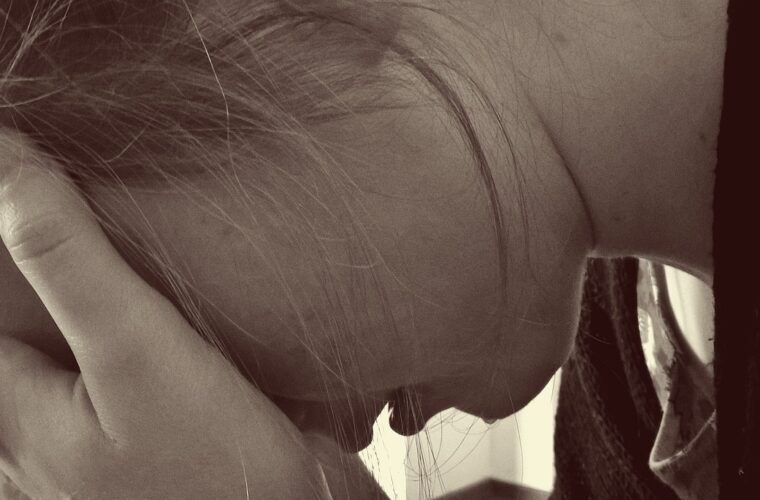As a psychotherapist, I’ve witnessed firsthand the profound impact of health anxiety on individuals’ lives. Health anxiety, also known as illness anxiety disorder or hypochondriasis, is a complex condition characterised by excessive worry about having a serious illness, despite minimal or no symptoms. In this article, we’ll delve into the challenges faced by those grappling with health anxiety and explore how therapy serves as a guiding light, offering solace and support on the journey to recovery.
Understanding Health Anxiety
Health anxiety is more than just being concerned about one’s health; it’s a pervasive and consuming fear of being seriously ill, often accompanied by frequent checking of bodily symptoms, seeking reassurance from healthcare professionals, and avoidance of medical information or situations that trigger anxiety. Individuals with health anxiety may experience debilitating distress, even when medical tests and evaluations consistently reveal no evidence of illness. This persistent preoccupation with health can lead to significant impairment in daily functioning, strained relationships, and decreased quality of life.
The Challenges it Presents
For those living with health anxiety, every twinge, ache, or sensation can trigger a cascade of catastrophic thoughts. The fear of having a serious illness looms large, casting a shadow over even the simplest of activities. Sleep may be disrupted by worries about symptoms, while social interactions become fraught with anxiety as individuals seek reassurance from others or avoid situations that might exacerbate their fears. The constant cycle of worry, reassurance-seeking, and avoidance perpetuates the cycle of anxiety, creating a suffocating sense of helplessness and isolation.
Moreover, health anxiety can manifest physically, with individuals experiencing symptoms such as palpitations, dizziness, or gastrointestinal distress, further reinforcing their belief that something must be seriously wrong. This somatic component of health anxiety blurs the line between physical sensations and psychological distress, making it challenging to untangle the complex interplay between mind and body.
Is General Anxiety Common with Health Anxiety?
Yes, General Anxiety is common for individuals with health anxiety to also experience symptoms of general anxiety. While health anxiety is characterised by excessive worry and fear specifically related to one’s health, general anxiety can manifest as excessive worry and fear about various aspects of life, such as work, relationships, and daily responsibilities.
The overlap between health anxiety and general anxiety can exacerbate overall anxiety levels and contribute to significant distress and impairment in functioning. For example, individuals with health anxiety may experience heightened worry not only about their health but also about potential consequences of their anxiety, such as how it may impact their relationships or ability to perform daily tasks.
Addressing both health anxiety and general anxiety in therapy is important for comprehensive treatment. Psychotherapeutic approaches, such as cognitive-behavioral therapy (CBT), can help individuals develop coping strategies to manage both types of anxiety effectively. By addressing underlying cognitive distortions, developing relaxation techniques, and building resilience, individuals can experience relief from both health-related and general anxiety symptoms, leading to improved overall well-being.
How Therapy Can Help
Therapy provides a forum for individuals to be heard and understood which is important no matter what the issue. Validating and normalising patients concerns can be a very relieving start in the therapeutic journey.
Through a collaborative and empathetic therapeutic relationship, individuals with health anxiety can explore the roots of their fears, challenge distorted beliefs, and develop effective coping strategies to regain a sense of control over their lives.
Underlying health anxiety may be a host of unprocessed emotions, such as fear, grief, or vulnerability. In therapy, individuals have the opportunity to explore these emotions in a safe and supportive environment, gaining insight into how past experiences may have shaped their current beliefs about health and illness. By acknowledging and processing these emotions, individuals can begin to release the grip of anxiety and move towards a more integrated and authentic sense of self.
Cognitive-Behavioral Therapy (CBT)
Challenging distorted beliefs about health using CBT is a highly effective approach in treating health anxiety. Through CBT, individuals learn to identify and challenge irrational fears and catastrophic interpretations of bodily sensations, replacing them with more balanced and realistic perspectives. Therapists guide clients in exploring the evidence for and against their anxious beliefs, helping them develop alternative interpretations that are grounded in reality.
Exposure exercises can be incorporated into CBT sessions, gradually exposing individuals to feared health-related situations or sensations to reduce avoidance behaviours and reassurance-seeking and increase tolerance of uncertainty. By addressing cognitive distortions and behavioral patterns associated with health anxiety, CBT empowers individuals to regain control over their thoughts and behaviors, ultimately leading to a reduction in anxiety symptoms and an improvement in overall well-being.
Final thoughts
Health anxiety can cast a long shadow over individuals’ lives, but with the support of therapy, healing is possible. By understanding the roots of their fears, challenging distorted beliefs, and developing effective coping strategies, individuals can reclaim their sense of agency and vitality. As a psychotherapist, I am continually inspired by the resilience and courage of those grappling with health anxiety, and I am honored to accompany them on their journey towards greater peace and well-being.










